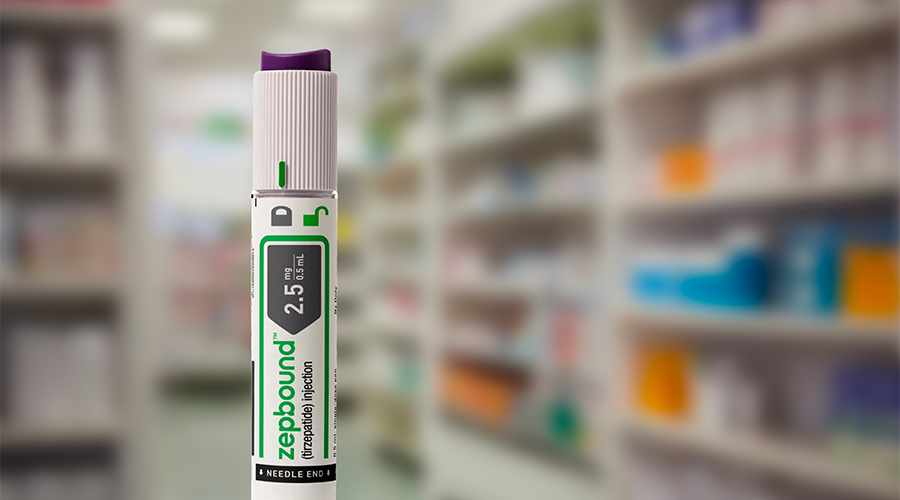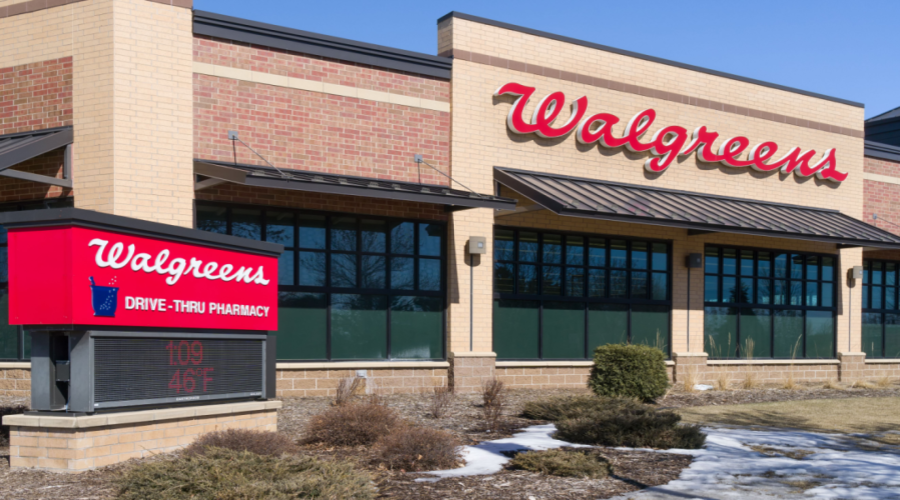On November 8, 2023, the Food and Drug Administration (FDA) approved a new weight-loss drug for adults from drugmaker Eli Lilly. The new drug is called Zepbound, a tirzepatide medication branded as Mounjaro for diabetes, and it’s been shown in clinical trials to help people lose up to 52 pounds in 16 months.
The FDA approved Zepbound, just as they did for Wegovy, for adults who are considered obese using body mass index (BMI), a ratio of weight to height. People with a BMI of at least 30 or higher, and those with a BMI of 27 and at least one health condition related to weight, such as diabetes or high blood pressure, are eligible. Patients who use the new drug should be on a reduced calorie diet along with an increase in physical activity.
Zepbound is a GLP-1 agonist, a class of drugs that mimic a hormone that helps reduce food intake and appetite. The difference is that Zepbound also imitates GIP, a second hormone that, along with reducing appetite, might also improve how sugar and fat break down in the body.
The new weight-loss drug will be administered with an injection pen. The company says it will also be sold at a lesser list price than Wegovy and Ozempic, its semaglutide competitors from Novo Nordisk.
Though there haven’t been results from comparing Novo Nordisk’s and Eli Lilly’s medications head-to-head, research suggests Zepbound just might outperform Ozempic. But a report by the Institute for Clinical and Economic Review comparing semaglutide and tirzepatide for diabetics earlier this year concluded that there was a greater reduction in weight loss along with other key markers with tirzepatide. However, it also showed that tirzepatide has a greater incidence of gastrointestinal side effects, severe adverse events, and discontinuation compared with semaglutide.
According to the FDA, Zepbound shouldn’t be used for patients with:
- A personal or family history of medullary thyroid cancer
- A rare genetic condition known as Multiple Endocrine Neoplasia Syndrome type 2, which causes tumors in the
endocrine system
There are also warnings that come along with the drug, including the risk of severe gastrointestinal disease including nausea, diarrhea, vomiting, constipation, stomach pain, kidney and pancreatitis-related issues, hypersensitivity reactions, and suicidal behavior and ideation. Patients should also stay away from the drug while pregnant due to the risk of fetal harm.
A more serious complication some patients have reported since weight-loss drugs became popular is the risk of stomach paralysis (gastroparesis). Unfortunately, this wasn’t specifically mentioned on the label, and lawsuits ensued. Both Eli Lilly and Novo Nordisk have faced claims that their drugs cause stomach paralysis. However, while GI issues are very common with GLP-1 medications, most side effects won’t affect a person’s quality of life.
According to Eli Lilly, Zepbound should be available in the U.S. by the end of the year. The list price will be about $1060 for a month’s supply. However, the current cost may keep many people away due to insurance companies that are reluctant to cover weight-loss medications. Plus, Medicare doesn’t cover them.
Zepbound should not be combined with other GLP-1 receptor agonist drugs, including Mounjaro, as well as Wegovy and Ozempic. The safety and effectiveness haven’t yet been established.
What It Can Do
People taking Zepbound in clinical trials on average lost 48 pounds at the highest dose. At the lower dose, they lost 34 pounds on average. Additionally, during its trials, it helped some patients lose more than 25% of their body weight.
From the Magazine
This article was published in our quarterly print magazine, which covers relevant topics in greater depth featuring leading experts in the industry. Subscribe to receive the quarterly print issue in your mailbox. All registered independent pharmacies in the U.S. are eligible to receive a free subscription.
More articles from the December 2023 issue:
- Your Pharmacy Online
- Why You Need an IVR System
- Detecting Early Cognitive Decline
- Making Room for Skin Care
- The Benefits of Cash Pharmacies
- Helping Patients Save
- Nationwide Chain Closings
- New FDA-Approved Weight-Loss Competitor
A Member-Owned Company Serving Independent Pharmacies
PBA Health is dedicated to helping independent pharmacies reach their full potential on the buy-side of their business. Founded and run by pharmacists, PBA Health serves independent pharmacies with group purchasing services, wholesaler contract negotiations, proprietary purchasing tools, and more.
An HDA member, PBA Health operates its own NABP-accredited warehouse with more than 6,000 SKUs, including brands, generics, narcotics CII-CV, cold-storage products, and over-the-counter (OTC) products — offering the lowest prices in the secondary market.












